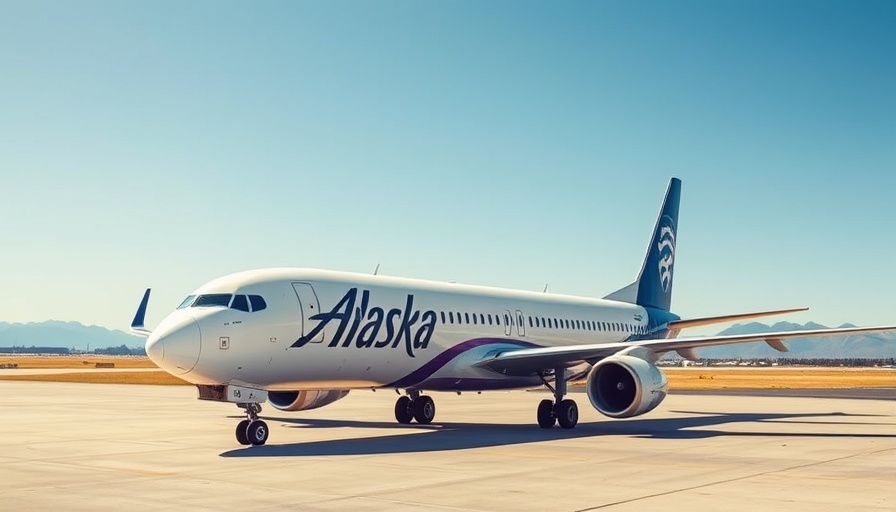
Understanding Tariffs and Their Impact on Airlines
The recent announcement by Alaska Airlines reveals a complex intersection of trade policy and aviation operations. With the implementation of tariffs on imported steel and aluminum, Alaska Airlines has found itself in a challenging position, forcing it to cancel more than a dozen flights daily. This decision stems from the airline's inability to accept new aircraft deliveries without incurring significant additional costs.
What Led to Flight Cancellations?
Alaska Airlines, headquartered in Seattle, made the decision to delay the acceptance of two Embraer 175 regional jets, which were intended for its regional subsidiary, Horizon Air. The delay is a direct response to a 10% tariff on Brazilian aircraft imports that began in April. Rather than absorb these costs, the airline opted to cancel approximately 14 flights each day through the end of July, as these new aircraft were expected to enhance their flight operations in the Pacific Northwest and beyond.
Broader Implications of Tariffs on Aviation
The airline industry is increasingly vocal about how tariffs disrupt supply chains and raise operational costs. Notably, Delta Air Lines previously circumvented similar tariff implications by flying new Airbus jets internationally before bringing them to the U.S. This move allowed them to avoid fees by marking the planes as used upon arrival.
In light of this, Alaska Airlines is not alone in feeling the pinch from trade policies. The airline has expressed regret regarding how these flight cancellations impact customers, emphasizing its commitment to minimize disruptions wherever possible. Alaska Airlines is strategically canceling routes served by multiple flights, ensuring that no single route is completely abandoned, so as to maintain service for affected communities.
The Customer Experience and Reaccommodations
“We deeply regret the impact this situation will have on our guests this summer,” Alaska Airlines stated, outlining their efforts to reaccommodate affected travelers with alternative options. The airline recognizes that this operational disruption can be immensely frustrating for passengers planning their summer getaways.
By centering their decision-making around customer needs, Alaska is attempting to soften the blow of these cancellations, affirming their commitment to serve communities where flight options are already limited. The airline has launched initiatives to facilitate travel alternatives, demonstrating resilience in the face of economic uncertainties.
Future Predictions in a Tariff-Heavy Environment
As the industry grapples with ongoing tariff implications, the future of aviation depends on the ability to innovate and adapt. The increasing cost of aircraft imports and flight operations could stymie growth for airlines unless remedial measures, such as trade negotiations or policy revisions, materialize. Observers predict that airlines may continue to explore creative solutions to mitigate these tariffs, allowing them to better navigate the financial landscape dictated by international trade policies.
Broader Economic Insights
The implications of tariffs extend beyond the aviation sector. They encapsulate a broader national conversation about trade practices and their ripple effects on various industries. While some companies adapt by rerouting shipments, others inevitably face operational restraints that limit their competitive edge.
By understanding the nuanced impacts of tariffs and their capacities to disrupt the economy, consumers and businesses alike can stay informed about the challenges within their industries. This knowledge can foster better dialogue about the direction of trade policies and the importance of balancing national interests with economic needs.
As Aviators and travelers confront the fallout from these trade decisions, it is vital to monitor how these developments will shape the future of air travel and beyond. Each step taken today not only affects the immediate landscape but also lays the groundwork for future interactions with the global economy.
In this volatile economic climate, consumers are encouraged to stay abreast of updates regarding travel arrangements and impacts stemming from such geopolitical issues, as they can significantly alter travel experiences.
Stay informed and engaged with this and other related topics to better understand how international trade policies might influence your travel plans this summer.
 Add Element
Add Element  Add Row
Add Row 



 Add Row
Add Row  Add
Add 


Write A Comment